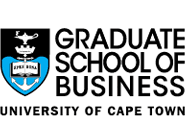Our readers may not have noticed but the Financial Times ranking of Business Schools around the world was published yesterday. The top schools as estimated by the schools themselves and by the opinions of their alumni were jointly the London Business School and the Wharton School at the University of Pennsylvania. Third was Harvard and joint fourth, Insead and Stanford Business School.
 In 60th place up from 89 in 2010 was the GSB at the University of Cape Town. It is the only business school in Africa that is ranked in the FT top 100. Most interestingly the Cape Town GSB ranked first in the Value for Money Category. This has a low three per cent weight in the overall score and so could not have made a great difference to the ranking order. Much more important for the ranking Measure are the categories Weighted Salary with a 20% weight (the average alumnus salary today with adjustment for salary variations between industry sectors. Includes data for the current year and the one or two preceding years where available) and the Salary Percentage Increase with another 20% weight (The percentage increase in average alumnus salary from before the MBA to today as a percentage of the pre-MBA salary).
In 60th place up from 89 in 2010 was the GSB at the University of Cape Town. It is the only business school in Africa that is ranked in the FT top 100. Most interestingly the Cape Town GSB ranked first in the Value for Money Category. This has a low three per cent weight in the overall score and so could not have made a great difference to the ranking order. Much more important for the ranking Measure are the categories Weighted Salary with a 20% weight (the average alumnus salary today with adjustment for salary variations between industry sectors. Includes data for the current year and the one or two preceding years where available) and the Salary Percentage Increase with another 20% weight (The percentage increase in average alumnus salary from before the MBA to today as a percentage of the pre-MBA salary).
The weighted average salary of UCT alumni in 2011 was estimated as USD140,896 and the average increase as 76%. By comparison the weighted salary for the top school London was little more at USD 145,776 and US171,551 for the average Wharton graduate. The Harvard average was USD170,238 and that of Insead USD147883. The Cape Town graduate salary after graduation thus compares very well with those of the best schools. The Chicago (ranked 12) graduate earns an average USD151,173 after graduation, the average Yale (ranked 15) MBA, earned USD146,999 while graduates from the Stern School in New York ranked =15 earned e less than the Cape Town graduate (USD138,865). The salaries earned by graduates of the high ranking European and Asian schools typically earn less than their American and Cape Town contemporaries. The graduates of the top schools typically enjoyed more rapid increases than the average Cape Town which suggests the quality of the Cape Town student. But on the value for money axis the top schoold ranked very poorly. London ranked 57 on value for money, Wharton 89 and Harvard 87. New York was ranked 91 for value for money and Yale 79. On the value for money scale the European schools were more competitive.
The mixture of great value for money combined with highly competitive after graduation salaries and a highly acceptable increase in salaries surely makes a Cape Town MBA a highly desirable objective. Adjusted for purchasing power parity and very good access to beaches and mountains, not to mention good wine and restaurants? at reasonable prices adds to the relative value.
According to the FT there would have been another good reason to go to or have gone to the GSB at Cape Town. The GSB judged by its alumni ranked as high as 6th in Economics behind Chicago 1, MIT 2 Cranfield 3 Imperial College London 4 and the University of Rochester 5, and ahead of Yale, Wharton.
As far as I know the Economics curriculum at UCT has been designed and taught by a mere two lecturers in recent years. Take a big bow Barry Standish, your students clearly appreciate your efforts. Modesty prevents me from naming the other major contributor to economics at the UCT GSB.
Well said Prof! I had the privilege of attending lectures by both yourself (with Madalet of course) and Barry, with Economics and EFM definitely being my two most favourite subjects/topics…….
Hello, I’m angolan and i am living in Cape Town somerset west, I’m learning English. I wish to enter next year in your university. please send me all the info on how I can get. I expect your reply soon. thank you !!!!!!!